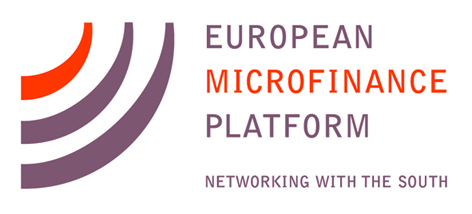Financial Inclusion Compass 2018: e-MFP Survey of Financial Inclusion Trends
The European Microfinance Platform (e-MFP) has launched the Financial Inclusion Compass 2018 – its new paper on emerging short, medium and long-term trends in the financial inclusion sector, based on a survey of e-MFP members and key industry stakeholders.
The Compass was conceived to be a way to leverage e-MFP’s multi-stakeholder membership and position in the inclusive finance community, while capturing too some of the dynamic debate from the workshops at the annual European Microfinance Week, giving a wide array of practitioners, investors, donors, academics and support service providers the opportunity to assess and describe the importance of various Trends, evaluate and give opinions on New Areas of Focus, and provide open-comment qualitative input on the expected (and hoped-for) direction of financial inclusion progress.
In this sense, says report author and Financial Inclusion Specialist at e-MFP Sam Mendelson, the Compass is a “not a crystal ball as much as it is a ‘time capsule’ – freezing in time what people working in inclusive finance see as important in the years ahead, so the sector can go back from year to year and see where it was wrong, and where it was right”.
The survey behind the Compass was mixed-methodology, asking for scoring of particular trends, their importance and direction of progress, and ratings of selected future Areas of Focus. Finally, respondents were asked to give comments on a series of questions that looked at challenges, opportunities, medium-term forecasts, the relevant financial service providers of the future, a policy-making ‘wish list’, and longer-term hopes.
Various themes emerged from the research, including the perceived threat of the FinTech revolution and digital financial services to end-clients; the related importance of client protection; the clear emerging focus on agri-finance and its related issues of climate change adaptation, energy finance and outreach to new segments; the mixed ecosystem of financial service providers that will co-exist in the future; and the key challenge of expanding financial education. These themes – and the quotes from respondents that inform them – are presented through the Compass, as well as quantitative breakdown of trend ratings by respondent group and geographical area of focus.
Says Christoph Pausch, Executive Secretary of e-MFP: “For some time now, we have been thinking about the different ways we could leverage our broad and unique multi-stakeholder membership, plus our key position within the sector, to help drive financial inclusion forward. The Compass survey, the primary purpose of which is to ‘take the pulse’ of the sector and to paint a picture of the its collective strategic vision, is an opportunity to expand this offering in a new and exciting way.”
Lead author Sam Mendelson says: “If you ask a good selection of people the right questions, forcing them to think about the past, the present and the future, a ‘line of best fit’ forecast of where we are going can emerge. Our job is to present it honestly always, and interpret and infer where necessary. This process is not about retrospectively working out who was right about what and who was wrong; is about using the ideas, forecasts, fears, hopes, aspirations and cautionary tales to guide the sector in the ‘right’ direction.”

